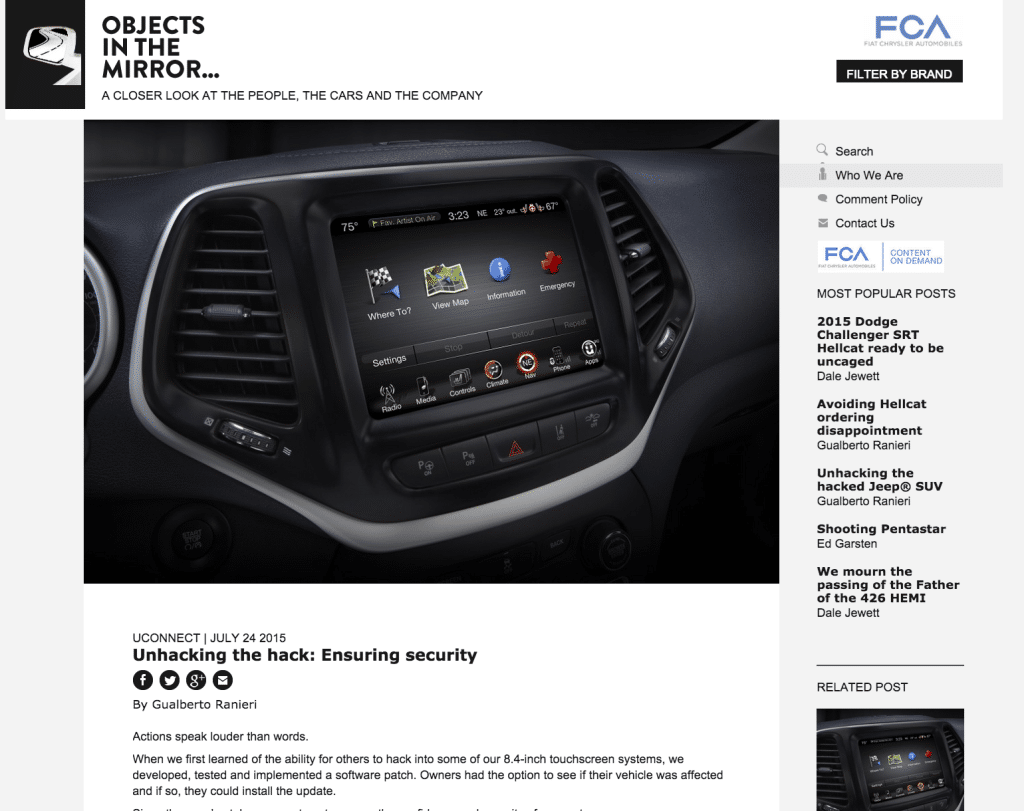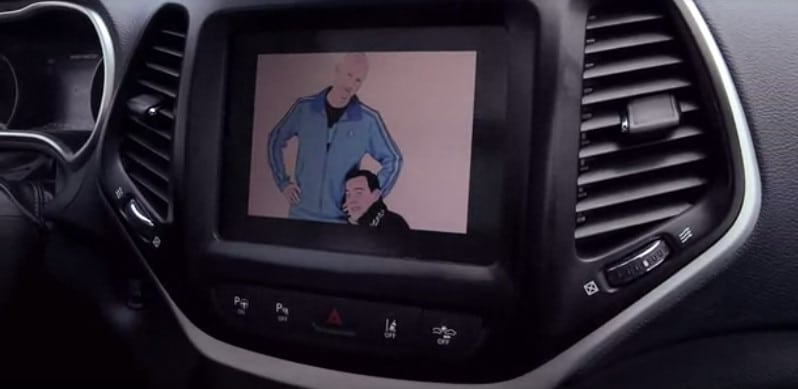In-brief:Caught between nifty new wireless features and ossified attitudes, automakers are just beginning to wake up to the security problems in vehicles. Strap on your seatbelt.
Black Hat
Black Hat: Talent Scarce, Firms Look to Automation and Ai
In-brief: with security talent scarce, experts at the Black Hat Briefings say that security automation fueled by machine learning and data analytics is going to play an increasing role in security operations.
Fiat Chrysler Recalls 1.4m Vehicles to Patch Wireless Vulnerability
In-brief: Fiat Chrysler is recalling 1.4 million vehicles to fix a software flaw that leaves the cars vulnerable to wireless hacks that could affect braking, steering and acceleration.
Updated: Nothing But Scary: Wireless Hacks Disable Car on Interstate
In-brief: Researchers Chris Valasek and Charlie Miller are demonstrating wireless attacks on connected vehicles that can alter critical functions like braking and acceleration. (Added comments from Chris Valasek July 21, 2015 12:15 ET)
Dusting For Malware’s Bloody Prints
Malicious software is nothing new. Computer viruses and worms have been around for decades, as have most other families of malware like remote access tools (RATs) and key loggers. But all our experience with malware hasn’t made the job of knowing when our organization has been hit by it any easier. In fact, recent news stories about breaches at Home Depot, Target, Staples and other organizations makes it clear that even sophisticated and wealthy corporations can easily overlook both the initial compromise and endemic malware infections – and at great cost. That may be why phrases like “dwell time” or “time to discovery” seem to pop up again and again in discussions of breach response. There’s no longer any shame in getting “popped.” The shame is in not knowing that it happened. Greg Hoglund says he has a fix for that latter problem. His new company, Outlier Security, isn’t “next generation […]





